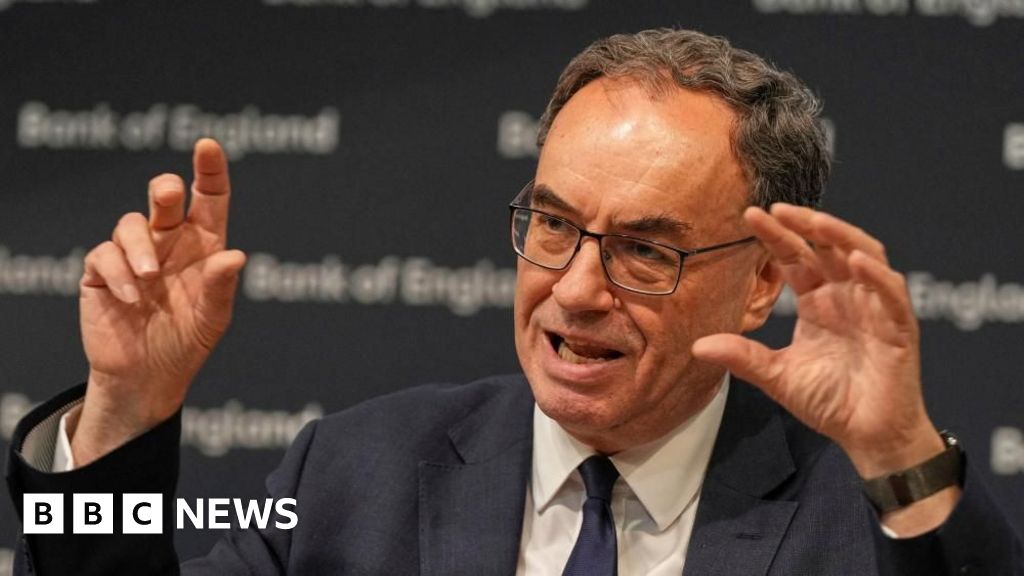The economic fallout from Brexit has become increasingly tangible, with the U.K. grappling with soaring inflation and the looming threat of a severe recession if interest rates continue to climb.
LONDON, UNITED KINGDOM: The Bank of England looks set to raise interest rates by a quarter point to … [+]
SOPA Images/LightRocket via Getty Images
For the first time since December, the average interest rate for a two-year fixed mortgage deal in Britain has surpassed 6%. The BBC reported that this escalation is driven by mortgage lenders who have been rapidly increasing rates and withdrawing deals, consequently raising expenses for homeowners on the hunt for new arrangements.
The recent surge in inflation coupled with robust wage growth has led to expectations of a greater-than-anticipated rise in interest rates, which will inevitably elevate borrowing costs.
According to The Guardian, The former governor of the Bank of England, Mark Carney, attributes these troubling developments largely to Britain’s decision to leave the European Union.
Carney’s Brexit warnings, which were once a subject of controversy and accusations of political bias, have been proven disconcertingly accurate. He had cautioned that Brexit would trigger a period of negative supply shock, resulting in a weaker pound, higher inflation, and slower growth. As he put it, “We laid out in advance of Brexit that this will be a negative supply shock for a period of time and the consequence of that will be a weaker pound, higher inflation and weaker growth.”
However, the discourse surrounding the causes of the U.K.’s economic woes is far from unanimous. Andrea Leadsom, the former business secretary, refutes the idea that Brexit is the sole cause of inflation. She told The Guardian that global issues such as the surge in energy prices following Russia’s invasion of Ukraine and disruptions to supply chains caused by the Covid-19 pandemic are also significant factors.
The heated debate over the economic impact of Brexit underscores the strategic challenges and leadership responsibilities during significant political shifts. The conversations around the causes and consequences of the inflationary pressures are expected to continue, reflecting the complex interplay of leadership, strategy, and economic realities in the post-Brexit era.
In a related development, economists are sounding the alarm about the potential repercussions of rising interest rates. According to Bloomberg, if rates reach 6% the U.K. could face a sharp recession and a flood of job losses. These developments have put the nation’s leadership under intense scrutiny, with this week’s upcoming inflation bulletin marking a critical moment.
This week, the Bank of England’s Monetary Policy Committee (MPC) is due to meet to decide the future course of interest rates, according to The Times. The most recent inflation figures have consistently exceeded expectations, with another higher-than-anticipated number likely to disrupt financial markets.
The meeting will also have significant implications for the U.K.’s housing market and millions of mortgage payers. “Years of cheap money put homeowners on course for a brutal reckoning,” reported The Telegraph. The ONS concluded that 57% of those who took out fixed-rate home loans did so when rates were below 2%. Those whose deals expire soon will be refinancing at three times those rates. The resulting impact on housing demand and consumer confidence could have significant implications for the broader economy. According to the BBC, “Mortgages to go up by average of $3,700 a year for 800,000.”
Evidently, the repercussions of Brexit continue to reverberate through the U.K. economy. The persistent inflation, the looming threat of a sharp recession, and the potential for a brutal reckoning in the housing market illustrate the complexities and uncertainties of the post-Brexit era. The role of Brexit in these economic tribulations remains a point of contention, with some attributing the current state to Brexit and others attributing it to global factors like energy price surges and supply chain disruptions.
While the debate continues, what remains clear is the immediate pressure on the U.K.’s leadership, particularly the Bank of England and key government figures, to navigate these economic challenges effectively. The upcoming inflation bulletin from the ONS will mark a critical juncture, potentially prompting an adjustment in fiscal strategy if inflation continues to defy expectations.
And so, as the U.K. grapples with these challenges, it becomes increasingly apparent that the economic implications of Brexit are far from settled. The unfolding situation underscores the need for nuanced leadership, strategic decision-making, and a willingness to adapt to shifting economic realities. The resolution of these issues will shape not only the U.K.’s economic landscape but also its political discourse in the years to come. The Brexit story, it appears, is far from over.
Credit: Source link











